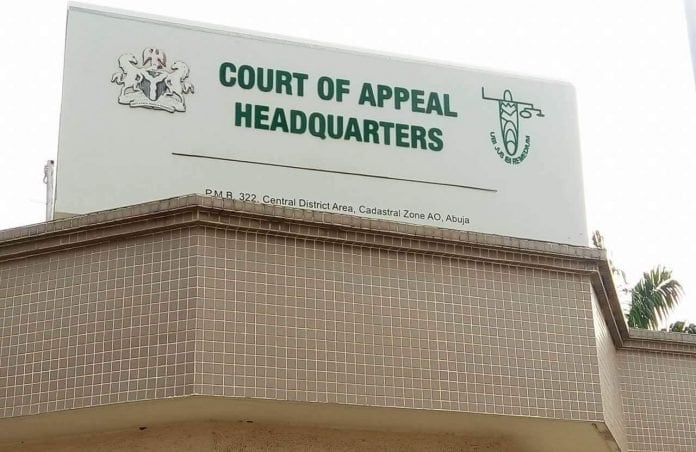An appellate court in Abuja has struck out the appeal filed by the federal government seeking to reopen the criminal trial of Orji Kalu, former Abia state governor.
In the judgment delivered on Wednesday, a three-member panel of the court held that the record of appeal transmitted before the court was incompetent.
Joseph Oyewole, who read the lead judgment, held that the federal government failed to properly transmit the record as prescribed by the rules of the court, and that it was neither stamped nor properly signed.
Consequently, the two appeals marked: CA/ABJ/CV/797/2021 and CA/ABJ/CV/798/2021, filed against Kalu and his firm, were struck out.
Advertisement
BACKGROUND
The Economic and Financial Crimes Commission (EFCC) had prosecuted Kalu alongside Ude Udeogu, a former director of finance and accounts with the Abia state government; and Slok Nigeria Limited, Kalu’s company; on 39 counts of fraud involving N7.1 billion, at a federal high court in Lagos.
Mohammed Idris, who is now a justice of the court of appeal, had at the end of the trial, sentenced Kalu to 12 years imprisonment while Udeogu was sentenced to 10 years in prison.
Advertisement
The third defendant, Slok Nigeria Limited, was ordered to be wound up and its assets forfeited to the Nigerian government.
However, the supreme court on May 8, 2020, voided the trial and ordered a retrial following an appeal filed by Kalu’s co-defendant.
But Kalu asked the court to stop the commission from retrying him.
According to him, the supreme court’s pronouncement on retrial was peculiar to Udeogu and it would amount to double jeopardy if he is allowed to be subjected to a fresh trial on the same charge.
Advertisement
In September 2021, Inyang Ekwo, judge of a federal high court, held that the supreme court did not specifically order that Kalu should be retried.
“He cannot be retried safe with an order of the supreme court,” the judge held.
Ekwo, however, held that since the apex court specifically ordered that the case file of Udeogu be returned to the federal high court, the EFCC can proceed with his retrial.
Advertisement
Add a comment






